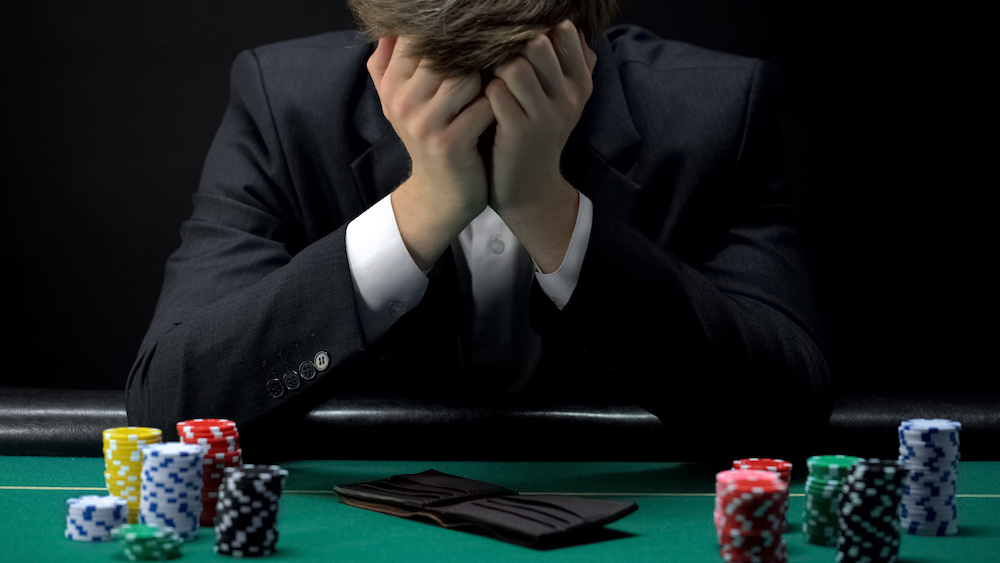Gambling addiction is a serious issue that often goes unnoticed. It doesn’t discriminate by age or gender and can happen to anyone at any time. Life-long gambling addicts are not rare, either; it’s estimated that nearly 1% of the population is addicted to gambling at some point in their lives. Regardless of how you feel about casinos, this article will give you an overview of what constitutes a gambling addiction so that you can identify it if it happens to someone close to you.
Contents
What Is Gambling Addiction?
 Gambling addiction is a condition that affects people of all ages and socioeconomic backgrounds. It is a compulsive disorder in which people gamble despite negative consequences. This can include problems with family, friends, work, or school
Gambling addiction is a condition that affects people of all ages and socioeconomic backgrounds. It is a compulsive disorder in which people gamble despite negative consequences. This can include problems with family, friends, work, or school
Gambling addiction can lead to financial ruin, criminal behavior, and even suicide. Those affected often feel like they’re unable to control their gambling habits and become desperate to continue betting no matter the consequences. This type of addiction is a mental disorder that requires treatment.
Gambling addiction is often confused with pathological gambling, but the two are not synonymous. Pathological gamblers don’t necessarily have to meet criteria for substance abuse or dependence and can be considered “problem gamblers.” Many people who suffer from pathological gambling develop their condition as a result of gambling addiction.
Types of Gambling Addiction
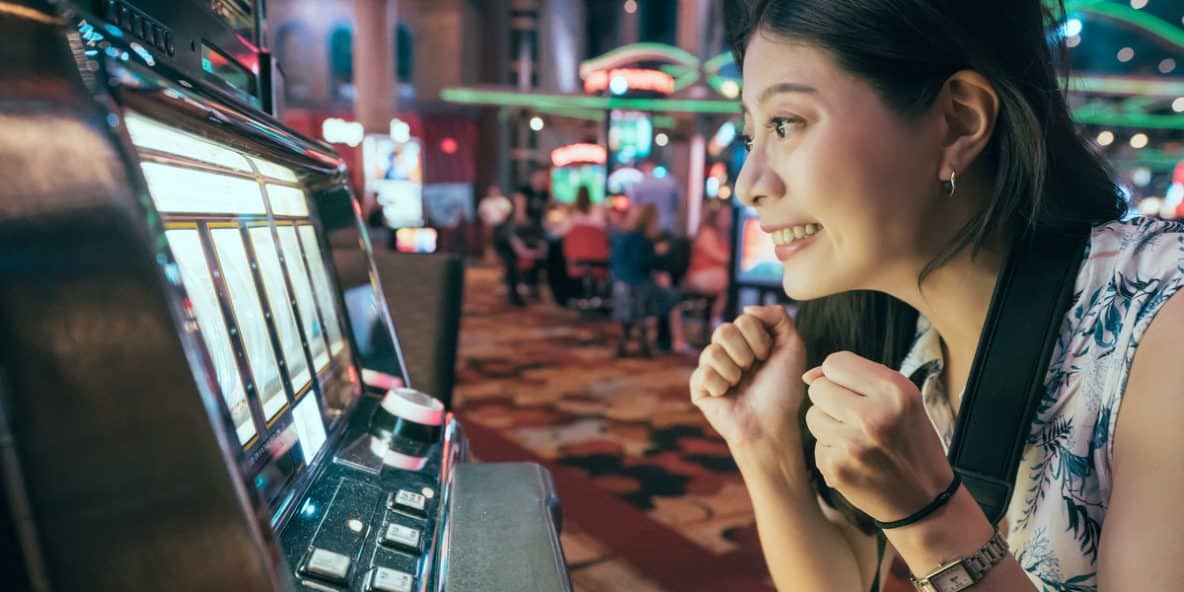
There are basically three types of gambling addiction:
Social Gambling
This type of gambling includes activities like bingo, lotteries, and raffles. It’s generally considered harmless and is done with friends or family. This type of gambling only becomes a problem when it affects relationships or causes financial distress.
Social gambling is the most common type of gambling, but some people can become addicted to activities like playing bingo. Gambling for money at social events shouldn’t be considered an addiction if it doesn’t lead to problems and isn’t done compulsively. However, those who gamble socially should still set spending limits in order to avoid getting into debt due to losses incurred during these games…
Problem Gambling
This occurs when people start to gamble more frequently than they intended and begin to experience negative consequences as a result. They may lose track of time or money, get into debt, or suffer from stress and anxiety. It also includes gambling with borrowed money or selling possessions in order to finance bets.
Problem gambling is the second most common type of gambling addiction and can lead to more serious consequences like debt, job loss, and family problems. It’s important for people who think they may have a problem with gambling to seek help before these issues get worse…
Pathological Gambling
This type of gambling disorder is the most severe form of gambling addiction. People with pathological gambling often gamble until they lose all their money or until they can no longer afford to bet. They may also borrow money, sell possessions, or do anything else possible to get more cash to gamble with. This type of addiction usually starts with problem gambling, but it becomes its own condition over time.
Pathological gambling can go on for years, and people with this condition may develop mental health problems like depression, anxiety disorders, or substance abuse.
Signs That Someone Is Having Gambling Addiction
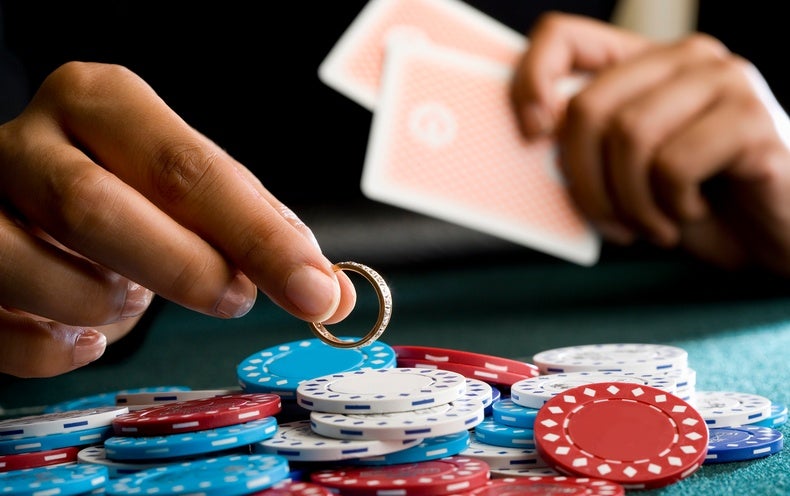
There are many signs that may depict that one is suffering from a gambling addiction. The most common ones are as follows:
Problems With Loved Ones
Gambling addicts often have problems with loved ones due to their addiction. This can include fights, lying, and stealing in order to get money to gamble. This may lead to the loss of family members, friends, and even spouses.
Money Problems
This is one of the most common signs of gambling addiction. Gamblers often lose track of how much money they’re spending on bets, and this can lead to financial ruin. They may also borrow money or sell possessions in order to get more cash to gamble with.
Unusual Interest In Gambling
People who are addicted to gambling will often have an unusual interest in it. This may include talking about gambling all the time, watching casino shows, or visiting online casinos frequently. It may also include obsessively checking the results of bets or waiting until the last minute to place a bet.
Excessive Time Spent Gambling
This is another sign that someone is suffering from a gambling addiction. People who are addicted to gambling will often spend excessive amounts of time at casinos or on gambling websites. They may also spend a lot of money to get new things that will help them gamble better, like special clothing for the casino floor or software programs.
Behavioral Problems
Another sign is behavioral abnormalities in an individual who seems to be addicted to gambling. These include compulsive lying, stealing from loved ones and friends, fighting with relatives, avoiding people due to debts incurred because of betting.
Causes of Gambling Addiction
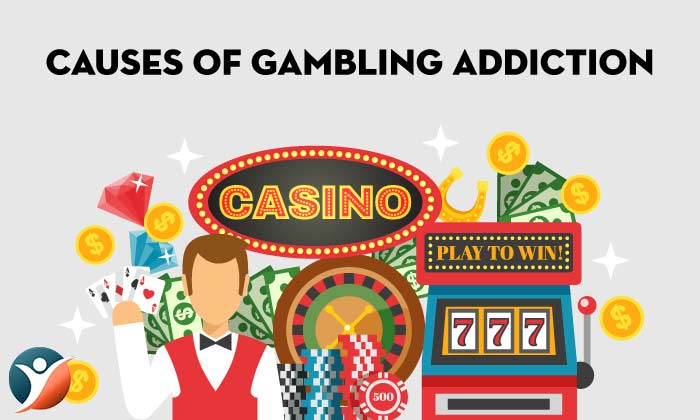
There are many causes of gambling addiction:
Boredom
Some people may start gambling because they’re bored and have nothing else to do. This is often the case for teenagers or young adults who don’t have a lot of responsibilities.
Depression
People with depression may turn to gambling as a way to escape their problems. They may also believe that gambling will make them happy, even though it usually doesn’t.
Anger
People who are angry about something in their life may gamble as a way to release this anger. They may think that winning will help them feel better about the situation. This can often lead to more anger and problems down the road.
Curiosity
People may also start gambling because they’re curious about it. This is common for people who have never gambled before or don’t know much about it.
Loneliness
Some people may start gambling because they’re lonely and want someone to talk to. They may see gambling as a way to make friends or have fun.
Excitement
People may also start gambling because they’re looking for excitement in their life. This can be dangerous because gambling is often very addictive.
Prevalence of Gambling Addiction
Gambling addiction is a problem that affects millions of people all over the world. In the United States, about two percent of the population has a gambling addiction. That’s around six million people! Pathological gambling is more common in men than women, and it usually starts when someone is around 21 years old.
This addiction mostly affects poor people. This is because rich people can afford to lose some money, but the working class often cannot. Sometimes gambling addiction also affects famous people, such as athletes and actors.
Negative Impacts of Gambling Addiction
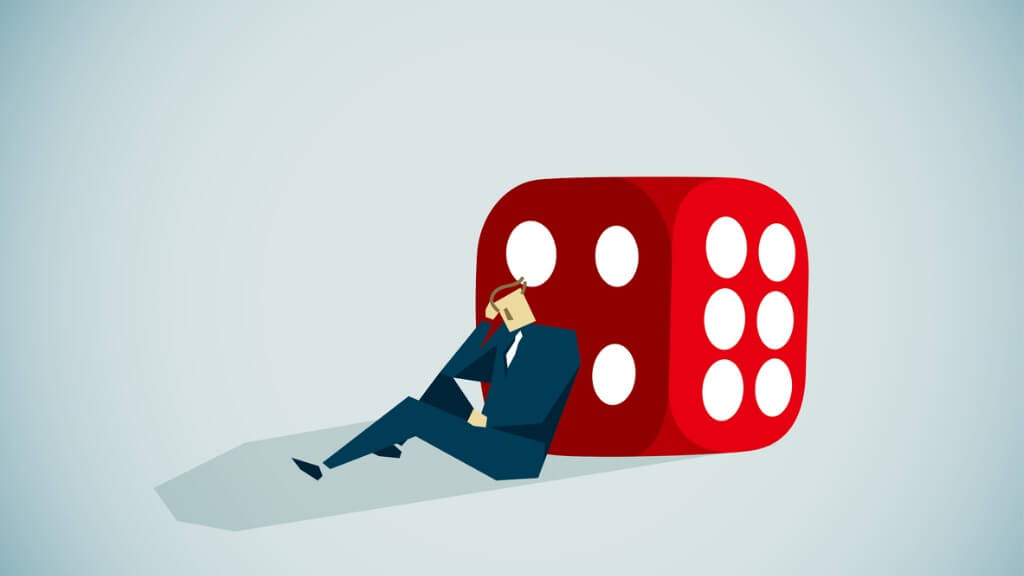
There can be many negative impacts of gambling addiction, both for the individual and for their loved ones. Some of these include:
Health Problems
Gambling addiction can lead to a lot of health problems, such as stress, anxiety, depression, heart problems, and even suicide. These problems can also lead to problems in other areas of the individual’s life, such as work or school.
Financial Problems
Gambling addiction can lead to financial problems for the individual. This is because people who are addicted to gambling often lose a lot of money they’re spending on bets, and this can lead to financial ruin. They may also borrow money or sell possessions in order to get more cash to gamble with.
Relationship Problems
This addiction can also lead to problems in relationships. This is because the individual may be spending so much time gambling that they have no time for their loved ones. They may also be stealing money from their partner or lying about how much money they’ve won or lost while gambling.
Legal Problems
Gambling addiction can also lead to legal problems for the individual. This is because people who are addicted to gambling often break the law in order to get more money to gamble with. This includes stealing, cheating, and fraud. There are also many other types of crimes that gambling addicts may commit, such as robbery and assault.
How To Stop Gambling Addiction?
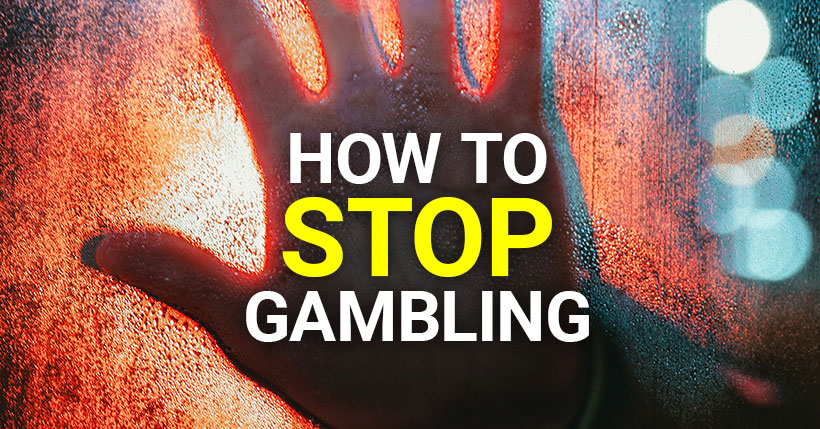
There can be many methods for preventing gambling addiction, including:
Try To Plan Your Finances
The best way to prevent gambling addiction is by trying to plan your finances. This means not spending all of the money you have in one day, and saving some for later use. Try putting 20 percent away every time you get paid. Then if you want something extra, like a new pair of shoes or an Xbox One game console, then try waiting until next payday before buying it. If this isn’t possible because there are unexpected expenses that come up during the month such as car repairs, medical bills; rent or mortgage payments, etc., find other ways to cut back on expenses so that you will be able to afford those items without having to resort to using credit cards which can cause even more debt problems down the road.
Stay Away From Gambling Establishments
Another method for preventing gambling addiction is by staying away from gambling establishments. This means not going to the casino, not buying lottery tickets, and steering clear of online gambling websites. By doing this, you’re greatly reducing your chances of becoming addicted to gambling.
Talk To Someone You Trust About Your Feelings
If you are struggling with thoughts about gambling or if you have already started to gamble, it’s important to talk to someone you trust about it. This could be a friend, family member, therapist, or even a support group for people with gambling addictions. Talking about your feelings and thoughts can help to keep them from turning into an addiction.
Keep Yourself Busy
If you find yourself wanting to gamble, try to keep yourself busy instead. This could mean going for a walk, reading a book, or watching a movie. Anything that will take your mind off of gambling and allow you to relax.
Make a Pledge
Making a pledge not to gamble is another way of preventing gambling addiction. This could be something as simple as writing down your pledge and putting it somewhere you will see it every day, such as on the refrigerator or bathroom mirror. By doing this, you’re reminding yourself of your commitment to stay away from gambling.
Seek Professional Help
This is the last resort for preventing gambling addiction, and it should only be considered if all of the other methods have failed. This is because professional help can be expensive and time-consuming. However, if you feel like you’re unable to stop gambling on your own then seeking professional help may be the best option for you. There are many different types of treatments available, so speak with a therapist or counselor to find out what would work best for you.
Conclusion
Gambling addiction is one of the most serious addictions that a person can have. It can lead to financial problems, legal problems, and health problems for the individual or their loved ones.
In conclusion, there are many different methods for preventing gambling addiction. The best way to prevent it is by trying to plan your finances, staying away from gambling establishments, talking to someone you trust about your feelings, and keeping yourself busy. If these methods don’t work, then seek professional help. Gambling addiction can have serious consequences for the individual, so it’s important to take steps to prevent it from happening.
A Word From Therapy Mantra
Your mental health — your psychological, emotional, and social well-being — has an impact on every aspect of your life. Positive mental health essentially allows you to effectively deal with life’s everyday challenges.
Also, at Therapy Care, we have a team of therapists who provide affordable online therapy to assist you with issues such as depression, anxiety, stress, relationship, OCD, LGBTQ, and PTSD. You can take our mental health test. You can also book a free therapy or download our free Android or iOS app.
